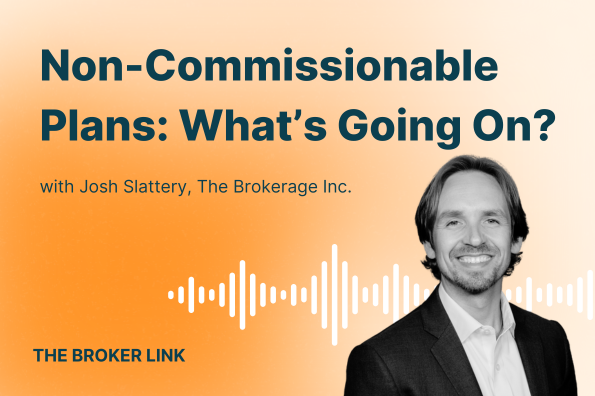Episode Summary
Gillan Boyer sat down with Leigha Hayes, an expert on Medicare Supplement and Medicare Advantage plans, to discuss key differences agents and consumers should understand between these two options. Leah outlined her background working in the government sector before joining her current brokerage 4 years ago.
They began by addressing some common concerns agents have with Medicare Supplements. One is that the letters associated with Supplement plans seem complicated. However, Leigha explained that Supplements offer more freedom of choice without being limited to networks. Medicare Advantage plans, on the other hand, typically have lower premiums but require copays and deductibles when receiving care within their networks.
Leigha then discussed the different funding structures between the two plan types. Medicare Advantage plans receive monthly premium payments from the government to take on risk for covering beneficiaries. Supplements are funded solely through consumer premiums. Leigha emphasized the importance of understanding insurance as risk transfer when working with these Medicare products.
The conversation covered commission structures as well. Supplement commissions vary by carrier but commonly pay a percentage of the premium. For Medicare Advantage, the commission structure differs. Leigha advised new agents to focus on just 3-5 carriers when first starting out, to avoid overwhelming consumers with too many choices.
Gillan and Leigha also went through sample scenarios to demonstrate the value of Supplements' flexibility for conditions like cancer treatment or broken bones, where seeing out-of-network specialists is often necessary. Leah encouraged any agents who sell only Medicare Advantage plans to carefully consider client health histories and needs when recommending a plan.
Compliance was another key difference they discussed. Medicare Supplements typically don't require the extensive certifications that Medicare Advantage plans do. To summarize, while both plan types have their merits, Supplements offer the ability to change plans year-round compared to Advantage's annual enrollment periods.
This discussion highlighted the nuances between Medicare Supplement and Advantage plans that agents should grasp in order to have informed conversations and recommend the right solutions for each beneficiary's needs.
Timestamps
(0:00:02) - We're going to be comparing Medicare supplements versus Medicare Advantage
(0:00:36) - Broker Link podcast is where agents go to grow their insurance business
(0:02:08) - A lot of agents have mixed feelings about Medicare supplements
(0:03:45) - Medicare supplements really are insurance, right? Right. If we just get to the definition of what insurance is
(0:06:38) - Walk me through the differences between a Medicare supplement and a Medicare Advantage
(0:12:15) - Dave Ramsey: I think agents are afraid of asking for the premium
(0:18:23) - Both of my grandparents are on a Medicare advantage plan and they love it
(0:19:44) - With Medicare supplements, the benefits on each carrier have to be the same
(0:24:32) - Let's talk about commissions on Medicare supplement and renewals
(0:27:00) - Now we talked with David about getting started in Medicare sales
(0:31:32) - Compliance is very important when selling Medicare Advantage or Medicare supplement
(0:33:07) - Can you cold call for Medicare supplements? Technically you can. However. Be very careful
(0:37:28) - Okay, let's summarize and then give everybody some next steps
(0:38:58) - This is the Broker Link podcast. Thanks so much for listening





